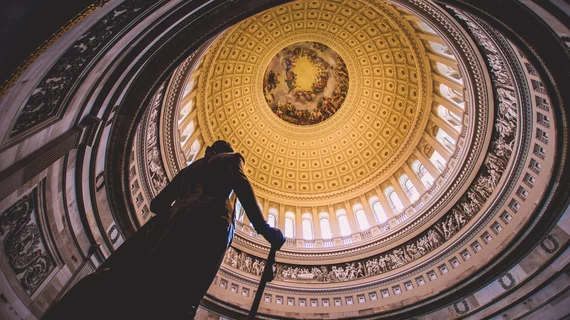‘Dead wrong’: American College of Radiology sounds alarm over low doc engagement on high-impact issue
The American College of Radiology expressed concern on Wednesday around low physician engagement on an issue that will have a huge impact on the field in less than two months.
ACR and its Radiology Advocacy Network’s worries stem from an 11% Medicare pay cut set to hit the specialty on Jan. 1. Hoping to drum up support for proposed legislation to offset reductions, the college has sent two “calls to action” to members in November, according to an update shared Wednesday.
However, ACR said only about 4% of physicians have responded thus far, representing “one of the lowest CTA participation rates that we have ever experienced.” Officials speculated that radiologists may be assuming that lawmakers will eventually find a solution to this issue, prior to 2021’s arrival, with no need for their own involvement.
“Unfortunately, that's dead wrong. Unless we come together to convince our legislators to intervene, this dramatic reduction in reimbursement is a done deal," David Youmans, MD, chairman of the Radiology Advocacy Network, said in a statement.
As of Nov. 18, ACR said it had compiled 1,914 letters to 348 members of Congress from its membership. The college isn’t alone in its opposition, with 73 other medical societies sending a letter to lawmakers earlier this month, endorsing the “Holding Providers Harmless from Medicare Cuts During COVID-19 Act.”
Among them was the American Society for Radiation Oncology, which said Wednesday that it’s hosting a virtual advocacy day on Nov. 19 and 20 with members of Congress. ASTRO is also hoping to convince Congress to move forward with HR 8702, the society said in an announcement.

